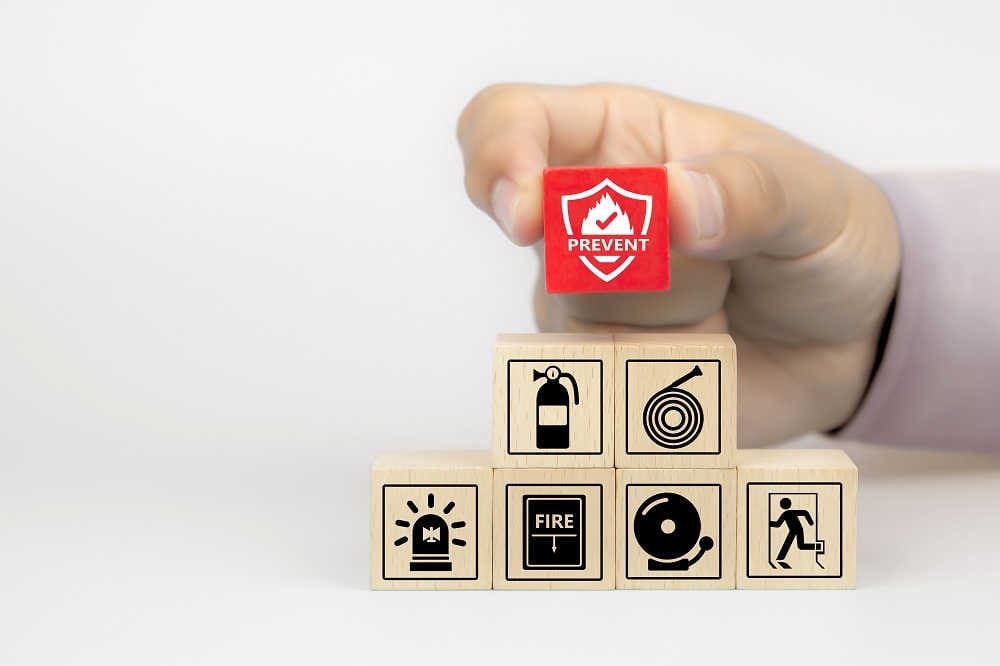Protect Your Home Against the Risk of Electrical Fire

Electricity is the lifeblood of the modern-day home, but it can be as dangerous as it is useful. Under the right circumstances, electricity can generate enough heat to cause a fire inside your house. These are known as electrical fires or Class C fires.
The best thing you can do to protect yourself against electrical fires is to be prepared. Electrical fire prevention starts with knowledge.
Today, we’ll walk through the common causes of electrical fires so that you can know what to do in case one happens.
What Causes Electrical Fires
An essential part of electrical fire prevention is knowing the basic electrical fire causes. There are quite a few to keep track of, but many of them are very much in your control.
With a little knowledge, you can effectively prevent electrical fires in your home and, hopefully, never have to deal with one at all!
Ungrounded Plugs
Many appliances, especially those with heavier power demands, come with a plug that has three prongs. Two of these prongs are the basic parts of any plug: neutral and hot connections. The third is your ground.
The ground helps to trip your circuit breaker when something goes wrong so that the appliance isn’t damaged and the fire risk is minimized. It also provides a place for dangerous excess current to flow.
Some people cut the ground on the wire if the outlets don’t include a place for it. Don’t do this! If your appliance needs to be grounded, keep the ground pin attached, and make sure it’s in good condition whenever you’re using it with a plug!
Faulty Outlets
Electrical outlet fires can be very unexpected, but they can often be prevented with a routine inspection. Now and then, lightly touch your outlets. If they feel warm or hot, something is wrong, and you should stop using that outlet and call a professional.
If your outlet seems to be behaving normally, make sure that whatever you’re plugging in has a power cord that is in good condition. Power cords that are frayed or worn can create dangerous levels of heat.
Overloaded Lights
Light bulbs are easy to buy, but getting the right one can be a little tricky. When a bulb burns out, you need to double-check the wattage that your light fixture calls for.
If you get a bulb that demands a higher wattage than your lamp recommends, electrical fires can occur. The power requirements for your light fixture are often labeled near the place that you insert the bulb. Match the listed wattage for best results.
Improperly Used Extension Cords
Extension cords are not necessarily designed for major appliances. If you plug a machine or device that demands higher wattage than the cord can support into a lower-wattage cable, you can overheat the extension cord.
With enough heat or time, this can result in an electrical fire. If you’re running any devices using extension cords right now, feel the cable for any heat. If it is getting warm, disconnect the appliance and check to see whether that cord is rated to handle that kind of appliance.
Flammable Materials
Flammable materials include cloth, stationery, lampshades, and anything else that can ignite from a spark or too much heat. Keep any flammable materials away from outlets and light fixtures to keep your home safe.
If you have pets, make sure to turn off any lamps that can tip over while you’re sleeping.
Old or Faulty Wiring
Bad wiring can result in stray sparks and high heat generation, which are sure ingredients for an electrical fire. Without routine electrical inspections, it can be difficult to identify bad wiring in your home.
The best thing you can do to ensure your safety is to get an inspection. A professional electrician will investigate all of your wiring and circuit breakers and repair anything that shows signs of danger.
How to Put Out an Electrical Fire: What to Do
In the event of an electrical fire, don’t panic. If the fire is too big to handle or if you have any doubts that you can stop the fire yourself, immediately call emergency services and evacuate your home.
If the fire is still small, use a fire extinguisher if one is available. Make sure your home is equipped with at least one Class C fire extinguisher designed to fight fires involving live electrical equipment.
When it is safe to do so, unplug anything that may be contributing to the fire. You can turn the power off at your circuit breaker, as well. If baking soda is handy and the fire is considerably small, you can dump baking soda on the fire to smother it.
Make sure to never use water while attempting to extinguish an electrical fire, as it is a conductor. You could inadvertently cause the fire to spark and cause electric shocks.
Mitchell Electric Can Help Protect Your Home
For the ultimate protection and electrical fire prevention, call Mitchell Electric. Our team can provide a full electrical inspection to make sure your home’s electrical infrastructure is in a safe condition.
